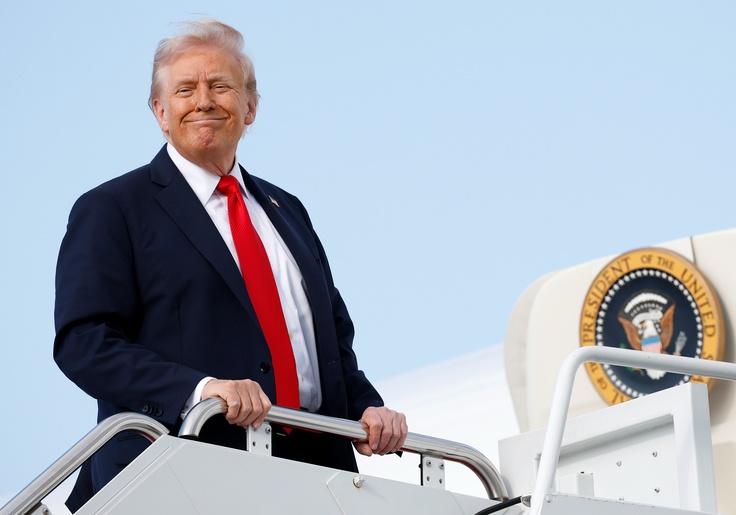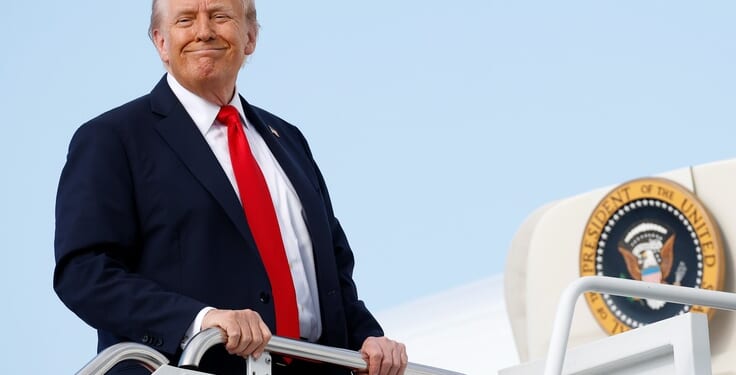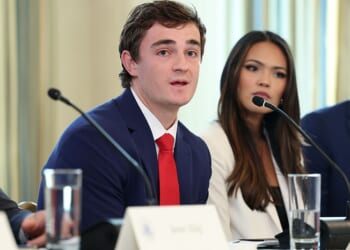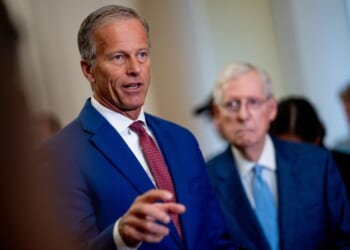Federal government’s 10 percent equity stake in the Thacker Pass project ‘ensures better stewardship of American taxpayer dollars,’ Energy Secretary Chris Wright says

The Trump administration is moving forward with a Biden-era loan worth $2.23 billion for a massive Nevada lithium mine in exchange for a sizable equity stake in the project, saving the largest planned lithium mine in the United States.
According to the Department of Energy, the federal government will take a 10 percent equity stake in the Thacker Pass project in a deal that Energy Secretary Chris Wright said “ensures better stewardship of American taxpayer dollars.” The agency will disburse the first tranche of the loan, worth $435 million, by the end of the year.
The Biden Department of Energy closed on the loan in October 2024 as part of its efforts to boost the domestic electric vehicle industry. The loan will finance a processing facility at the northern Nevada mine, which will be the nation’s first facility to produce battery-grade lithium. The project’s lead investor, General Motors, is expected to purchase the vast majority of that processed lithium to use in its electric vehicle batteries.
The Washington Free Beacon reported last month that the loan was in jeopardy after negotiations between the Department of Energy, General Motors, and Thacker Pass’s developer Lithium Americas went south. It was a significant development: If the loan fell through, Lithium Americas would have had to pause the project indefinitely and secure alternative financing to fend off bankruptcy.
In closed-door meetings, Trump officials expressed doubt about the project’s ability to compete with Chinese producers and sought to force General Motors to agree to a “take or pay” clause binding the automaker to purchase a set amount of the lithium produced at the facility over the next two decades. General Motors balked at that proposal, and the Trump administration held up disbursement of the loan.
But in recent days, the parties agreed to the U.S. government’s equity stake, a compromise that was not included in the Biden administration’s original terms of the loan.
The deal represents the latest example of President Donald Trump’s willingness to take on ownership stakes in private ventures to advance his administration’s priorities. In August, the U.S. government purchased a 10 percent stake in U.S. chipmaker Intel worth $8.9 billion, and a month before that, the Pentagon became the largest shareholder of rare earth miner MP Materials.
The Thacker Pass mine and processing facility are expected to produce up to 40,000 tons of lithium per year. That’s at least eight times more than the United States currently produces and would make the United States one of the world’s top producers of the strategically significant mineral overnight.
Lithium is a primary component of electric vehicle batteries, but it is also an important component of long-duration batteries and military equipment, making it vital to American energy and national security. In addition to General Motors, a smartphone glass maker in New York and a battery maker in California have privately expressed interest in purchasing from the Thacker Pass facility, the Free Beacon reported.
But China currently dominates global lithium supply chains. According to the latest data, China mines 17 percent and processes up to 70 percent of the world’s supply of lithium.
“Today’s announcement helps reduce our dependence on foreign adversaries for critical minerals by strengthening domestic supply chains,” Wright said in a statement.
“We’re confident in the Thacker Pass project, which will reduce U.S. dependence on imported lithium and can support domestic manufacturing across many industries, such as aerospace, defense and electrical grid resiliency, in addition to automotive,” added General Motors vice president Shilpan Amin.
The announcement comes as the Department of Energy continues to conduct a review of dozens of Biden-era energy loans worth tens of billions of dollars. Wright has expressed concern that many of the loans were rushed out in the waning days of the previous administration without a proper vetting process.

















